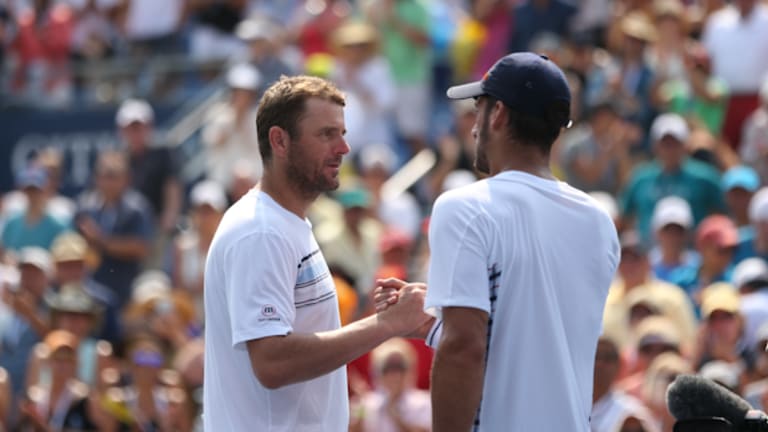NEW YORK—Mardy Fish understood when he came to Flushing Meadows this year that his last tournament wouldn’t have a storybook finish.
“This isn’t a sports movie, of course,” he wrote this week in "The Weight," a first-person article for The Players’ Tribune about the anxiety disorder that essentially ended his career in 2012. “And there won’t be a sports movie ending. I won’t be riding off into the sunset, lifting a trophy...But that’s fine by me.”
Fish was right; there was no feel-good ending, or even feel-OK ending, for him. By the fifth set of his second-round match against Feliciano Lopez on Wednesday, he was staggering across Louis Armstrong Stadium, the victim of a debilitating set of cramps. He requested a trainer, but by the time one made it across the grounds, it was 20 minutes later and the match was over.
Worse, Fish had played well, well enough that Lopez told him “you deserved to win” when they shook hands. He had reminded many of us of what a pleasure it had been to watch his flowing, attacking game when he was comfortable and in a groove, the easy and elegant way he leaned in and timed a two-handed backhand approach. But when he served for the match at 5-4 in the fourth set, Fish froze and was broken at love. The crowd that had chanted “Let’s go, Mar-dy!” for two hours could only watch in apprehensive silence over the last four, painful games. Even by Fish’s realistic expectations, this couldn’t have been the way he pictured walking off after his last match.
